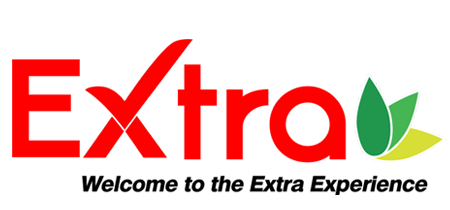Periodic maintenance assessments are imperative for safeguarding residential and commercial properties. These examinations reveal potential issues that could evolve into significant challenges if overlooked. By prioritizing these evaluations, property owners can ensure their plumbing frameworks function optimally while adhering to local code compliance regulations.
Each inspection serves as an opportunity to identify not just existing problems, but also areas of improvement that enhance overall system reliability. Knowledge of fundamental components and their condition allows homeowners to take proactive measures, ensuring lasting safety and comfort within their spaces. For a closer look at what these evaluations encompass, visit this informative resource.
Integrating routine check-ups into property care routines helps maintain a high standard of living and operational efficiency. Assessments should focus on various elements, including pipes, fixtures, and drainage systems, each playing a pivotal role in everyday functionality.
By being aware of potential red flags and addressing them timely, property owners not only protect their investments but also enhance the quality of their living or working environments. Routine evaluations instill confidence in the integrity of plumbing networks, ultimately leading to greater peace of mind.
Identifying Common Plumbing Problems During Inspections
During any assessment, pinpointing prevalent issues within water supply and drainage setups is crucial for ensuring proper functionality. Engaging professional services can facilitate a thorough examination, helping to identify potential concerns that may affect code compliance.
Utilizing inspection checklists can streamline the process and guarantee that no aspect is overlooked. Common problems include faulty pipes, inadequate drainage, and improperly installed fixtures. Regular maintenance assessments often reveal these issues before they escalate into costly repairs.
Of significant interest is clip testing, which evaluates the integrity of pipes under varying pressures. Scheduling regular examinations aids in leak detection, allowing for immediate action to mitigate water loss and prevent structural damage.
In addition to ensuring functionality, inspections serve to uphold local regulations. Failure to comply may result in fines or increased liability, reinforcing the need for meticulous attention to detail during evaluations.
Understanding these potential problems fosters proactive management, providing property owners peace of mind regarding their water systems.
Tools and Techniques for Conducting a Thorough Inspection
A successful evaluation of a piping framework requires proper tools and methods to identify issues efficiently. Utilizing inspection checklists allows evaluators to systematically assess each component, ensuring that no aspect goes overlooked. Well-prepared documentation not only aids in tracking findings but also serves as a reference for any necessary repairs or upgrades.
Scheduling inspections strategically enables professionals to maximize their time and resources. Techniques like leak detection and pressure testing are key in uncovering hidden problems that may not be visible through a conventional assessment. Ensuring code compliance is paramount, so engaging professional services can enhance the reliability of the inspection process. These practices support a thorough and accurate evaluation, fostering better outcomes for maintenance and repairs.
Understanding Local Codes and Regulations
Don’t miss out — check out https://bothamplumbingandheating.com/ and spin the reels for big wins.
Local documentation plays a pivotal role in ensuring compliance with plumbing standards. Each municipality has its specific set of rules that dictate installation, maintenance assessments, and renovations. For reliable information, consulting a trusted resource such as https://bothamplumbingandheating.com/ can aid homeowners in grasping these requirements.
Monitoring regulations involves scheduling regular evaluations to keep systems in line with local mandates. Employing professional services for pressure testing and leak detection can address potential issues early on, preventing costly repairs and ensuring safety.
Additionally, inspection checklists are useful tools that guide homeowners and professionals alike in adhering to local standards. Familiarity with these codes enhances not only compliance but also the longevity of the plumbing infrastructure, enabling efficient maintenance throughout the property’s lifespan.
When to Hire a Professional for Plumbing Inspections
Recognizing when to engage expert services for thorough assessments of your water flow and drainage framework can save you significant time and resources. Regular evaluations ensure functionality and safety, making it crucial to address potential issues before they escalate.
Here are several situations that warrant hiring a specialist:
- Signs of Major Damage: If you encounter severe leaks or visible structural issues, immediate professional assistance is recommended.
- Regular Maintenance Assessments: Scheduling annual reviews with a certified technician can prevent long-term problems, ensuring all components operate optimally.
- Complex Systems: If your infrastructure involves intricate piping, HVAC connections, or sewer lines, a knowledgeable expert will have the required tools and experience.
- Compliance with Local Regulations: Professionals are familiar with legal codes. They ensure that your modifications or repairs align with jurisdictional mandates.
Utilizing specialized services allows for advanced leak detection, pressure testing, and providing documentations of condition reports. These practices not only maintain integrity but also enhance property value through consistent upkeep.
Investing in professional evaluations ensures every aspect of your plumbing is monitored, reducing the risk of unforeseen hazards.

